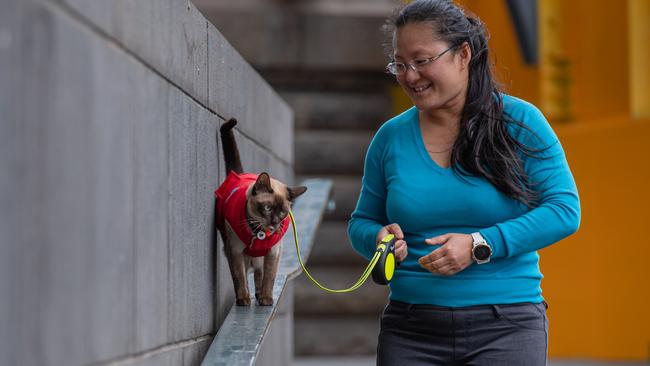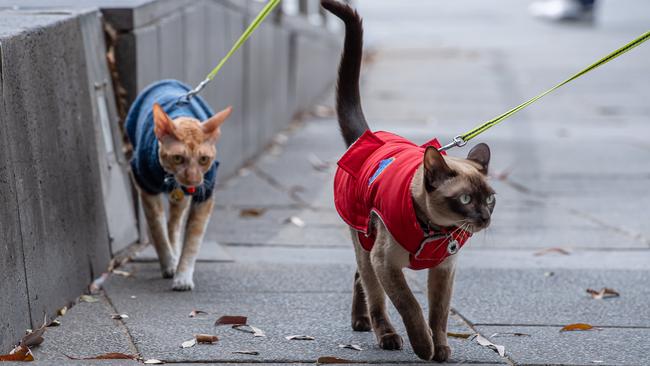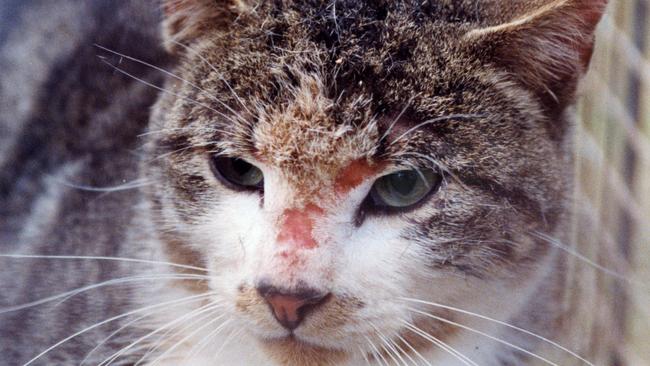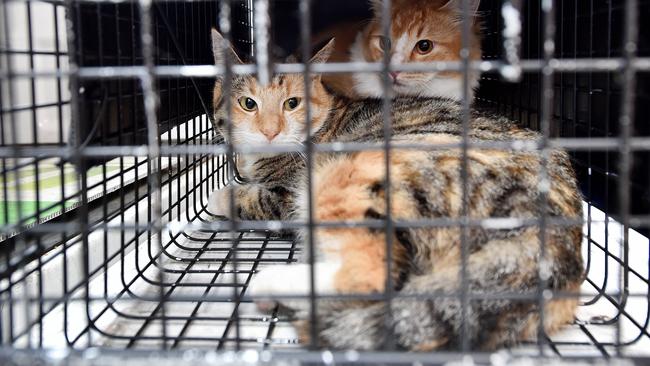Campbelltown Council to seek final public input before seeking permission to introduce cat bylaws
Cat owners in Adelaide’s northeast will be forced to walk their cats on leashes – and keep them indoors at night – under new controls.

North & North East
Don't miss out on the headlines from North & North East. Followed categories will be added to My News.
- State Parliament may strike down Marion Council’s cat curfew
- How to make the most out of your Advertiser subscription
Cat advocates have failed to stop Campbelltown Council from pushing ahead with new bylaws that will see cats controlled by leashes in public and kept indoors at night.
Elected members have voted to seek final public input before submitting the council’s new regulations to the Dog and Cat Management Board for endorsement.
Several other Adelaide councils have introduced — or are working to introduce — bylaws to control cats, with Gawler Council seeking permission to destroy roaming cats if they are seized and not claimed by their owners within 72 hours.
Marion Council is facing a possible parliamentary challenge against bylaws it wants to introduce next month, where cat owners could obtain traps from the council to catch felines which broke a night curfew.

Under Campbelltown Council’s bylaws, cat owners must register their pets, ensure they have collars with tags with contact telephone numbers, use leashes of a minimum length of 2m when exercising them in public and keep them indoors between 9pm and 7am.
A council meeting on Tuesday night decided to grant a three-year extension from when the bylaws become law before a full ban of cats being confined to their properties is introduced.
The decision came despite several appeals over the past two years by cat advocacy group, Cats Assistance to Sterilise (CATS), which argued the bylaws would do nothing to prevent problems caused by feral cats and domestic strays.
Spokeswoman Dr Suzanne Pope told the meeting that since the State Government had introduced compulsory microchipping of cats and online recording of cat ownership in 2018, desexing had dropped to the lowest levels in 30 years.
“Cat numbers have dramatically increased with the RSPCA reporting a 35 per cent increase in felines at its shelters in the last two years,” she said.
“Cat adoption groups are overflowing with felines and CATS estimates there has been a 50 per cent increase in undesexed cats and kittens in the community.”

Two Campbelltown councillors, Anna Leombruno and Therese Britton-La Salle, unsuccessfully tried to get their counterparts to drop the proposed bylaw.
The pair said CATS had provided compelling evidence about the need to focus on other measures, such as subsidised desexing and voluntary confinement.
Cr Leombruno said bylaws introduced by other Adelaide councils such as Mitcham had achieved nothing to reduce the problems caused by roaming cats.
“It’s really about education and doing the right thing about confinement,” she said.
Cr Britton-La Salle said there were “strong reasons” why only “six out of 70 councils” in the state had introduced cat bylaws.
“The problem does not lie with residents’ cats, the problem lies in feral cats and unhomed cats in the community,” she said.
Cr Britton-La Salle said the introduction of compulsory registration would add a further financial burden on ratepayers, especially if they were then fined for noncompliance.
“If residents feel there is problem with unhomed cats, let’s address that,” she said.
“Let’s not target residents’ cats, their loved pets.”

Cr Matthew Noble argued the cat bylaws were “sensible”, especially introducing a curfew between 9pm and 7am.
“There is nothing extreme, they are just sensible options that staff have put together for us,” he said.
“We fear for the wildlife, we see statistics on the numbers of birds and other creatures that cats kill.”
Cr Noble was supported by Cr Johannah McLuskey, who successfully moved for the cat bylaw to be sent out for community consultation, on the condition a full ban on cats leaving properties was not introduced until 2024.
Mayor Jill Whittaker said she “could see what part of the bylaw was going to be a problem for anyone”.
Once a compulsory 21-day period of community consultation is complete, the bylaw will be submitted for official approval.

